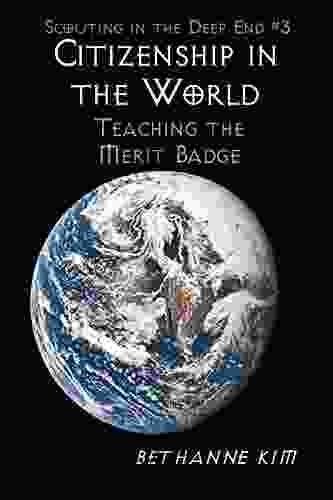Descartes' Error: Emotion, Reason, and the Human Brain

4.5 out of 5
| Language | : | English |
| File size | : | 1604 KB |
| Text-to-Speech | : | Enabled |
| Screen Reader | : | Supported |
| Enhanced typesetting | : | Enabled |
| X-Ray | : | Enabled |
| Word Wise | : | Enabled |
| Print length | : | 335 pages |
In the 17th century, the French philosopher René Descartes proposed a theory known as mind-body dualism, which suggested that the mind and body were two separate entities.
According to Descartes, the mind was a rational, non-physical substance that resided in the brain, while the body was a physical machine that was subject to the laws of nature.
This theory had a profound impact on Western thought, and it is still debated today. However, in recent years, advances in neuroscience have begun to challenge Descartes' ideas about the mind and body.
The Somatic Marker Hypothesis
One of the most influential theories to emerge from neuroscience is Antonio Damasio's somatic marker hypothesis.
This hypothesis suggests that emotions are not simply subjective experiences, but rather they are physical responses that are generated by the body.
According to Damasio, when we experience an emotion, our body releases chemicals that trigger a variety of physiological changes, such as increased heart rate, sweating, and muscle tension.
These physical changes are what we experience as emotions.
Damasio's somatic marker hypothesis has been supported by a number of studies, which have shown that people with damage to the brain areas involved in processing emotions have difficulty making decisions.
This suggests that emotions play an important role in decision-making, and that they are not simply irrational impulses that should be suppressed.
Interoception and Embodied Cognition
Another important concept that has emerged from neuroscience in recent years is interoception.
Interoception is the ability to sense the internal state of the body, including the heart rate, blood pressure, and body temperature.
Neuroscientists have discovered that interoception is closely linked to emotion, and that people with difficulty interoception have difficulty regulating their emotions.
This suggests that interoception plays an important role in our ability to experience and manage emotions.
Embodied cognition is another concept that has gained traction in recent years.
Embodied cognition suggests that our cognition is not simply a disembodied process that takes place in the brain, but rather it is influenced by our physical experiences.
For example, research has shown that people who are primed to think about physical concepts, such as warmth or coldness, are more likely to judge others as being warm or cold.
This suggests that our physical experiences can shape our thoughts and feelings.
The advances in neuroscience in recent years have begun to challenge Descartes' ideas about the mind and body.
Research has shown that emotions are not simply subjective experiences, but rather they are physical responses that are generated by the body.
Additionally, interoception and embodied cognition have shown that our physical experiences can shape our thoughts and feelings.
These findings suggest that the mind and body are not two separate entities, but rather they are deeply interconnected.
4.5 out of 5
| Language | : | English |
| File size | : | 1604 KB |
| Text-to-Speech | : | Enabled |
| Screen Reader | : | Supported |
| Enhanced typesetting | : | Enabled |
| X-Ray | : | Enabled |
| Word Wise | : | Enabled |
| Print length | : | 335 pages |
Do you want to contribute by writing guest posts on this blog?
Please contact us and send us a resume of previous articles that you have written.
 Fiction
Fiction Non Fiction
Non Fiction Romance
Romance Mystery
Mystery Thriller
Thriller SciFi
SciFi Fantasy
Fantasy Horror
Horror Biography
Biography Selfhelp
Selfhelp Business
Business History
History Classics
Classics Poetry
Poetry Childrens
Childrens Young Adult
Young Adult Educational
Educational Cooking
Cooking Travel
Travel Lifestyle
Lifestyle Spirituality
Spirituality Health
Health Fitness
Fitness Technology
Technology Science
Science Arts
Arts Crafts
Crafts DIY
DIY Gardening
Gardening Petcare
Petcare Jacob Bronowski
Jacob Bronowski Frank Nappi
Frank Nappi Mark Turley
Mark Turley Theresa Y Wee M D
Theresa Y Wee M D Patricia L Papernow
Patricia L Papernow Eric Tyndall
Eric Tyndall Anna B Doe
Anna B Doe Glenn Stout
Glenn Stout Amelia Freer
Amelia Freer Byron Nelson
Byron Nelson Patrick O Sullivan
Patrick O Sullivan Deborah Vinall Psyd Lmft
Deborah Vinall Psyd Lmft Jd Mader
Jd Mader Jack Freeman
Jack Freeman Rosalind Wiseman
Rosalind Wiseman Shere Hite
Shere Hite Heather Macfadyen
Heather Macfadyen Ned Seaton
Ned Seaton Henry A Zumbrun 2
Henry A Zumbrun 2 Christine Fanthome
Christine Fanthome Nathan Belofsky
Nathan Belofsky Dr Scott A Johnson
Dr Scott A Johnson Alex Polyakov
Alex Polyakov Oscar Baechler
Oscar Baechler Josephine Atluri
Josephine Atluri Robert Melillo
Robert Melillo Jim Santos
Jim Santos Jenny Landreth
Jenny Landreth Joseph Conrad
Joseph Conrad Erin Chack
Erin Chack Joellen Patterson
Joellen Patterson Ellie Wood
Ellie Wood Ruth Nestvold
Ruth Nestvold American Baseball Coaches Association
American Baseball Coaches Association The 60 Minutes Summary
The 60 Minutes Summary Amy Adele Hasinoff
Amy Adele Hasinoff Kathy A Zahler
Kathy A Zahler Jenni Hicks
Jenni Hicks Andy Hunt
Andy Hunt Jerry D Moore
Jerry D Moore Spike Dykes
Spike Dykes Rodney M Howard Browne
Rodney M Howard Browne Amy Brown
Amy Brown Antonio R Damasio
Antonio R Damasio Lizabeth Hardman
Lizabeth Hardman Jan E Stets
Jan E Stets Jennifer Margulis
Jennifer Margulis Jan Marie Mueller
Jan Marie Mueller Mark Taylor
Mark Taylor Claudia J Carr
Claudia J Carr Rick Stanton
Rick Stanton Christopher Harlan
Christopher Harlan Sharon K Zumbrunn
Sharon K Zumbrunn Gia Giasullo
Gia Giasullo Josh Taylor
Josh Taylor Janet Engle
Janet Engle John L Field
John L Field Jack Tupp
Jack Tupp Matthew Lombardi
Matthew Lombardi Tanya Turner
Tanya Turner Art Star
Art Star Deborah J Rumsey
Deborah J Rumsey Nikala Smith
Nikala Smith James W Williams
James W Williams Ruta Nonacs
Ruta Nonacs Stephen J Collier
Stephen J Collier Sheena Johnstone
Sheena Johnstone Joe Dante
Joe Dante Sian Warriner
Sian Warriner Julie Barlow
Julie Barlow Matthew L Martin
Matthew L Martin Tom Deck
Tom Deck David Elkington
David Elkington Laekan Zea Kemp
Laekan Zea Kemp Cookie O Gorman
Cookie O Gorman Peter Worley
Peter Worley Stephen Walker
Stephen Walker Jon Bonnell
Jon Bonnell Joe E Harvey
Joe E Harvey Vinod Kumar Khanna
Vinod Kumar Khanna Mark Stallard
Mark Stallard Michael Cosgrove
Michael Cosgrove Paul Dickson
Paul Dickson Gerald Corey
Gerald Corey Shannon O Bourne
Shannon O Bourne Tim Marshall
Tim Marshall Nicholeen Peck
Nicholeen Peck Bill Carter
Bill Carter Reinhold Messner
Reinhold Messner Amira Mikhail
Amira Mikhail Rosanna Davison
Rosanna Davison Paul Schwartz
Paul Schwartz David Guymer
David Guymer Warren B Powell
Warren B Powell American Psychological Association
American Psychological Association Nicholas A Christakis
Nicholas A Christakis Dr Elizabeth Cherevaty Nd Rac
Dr Elizabeth Cherevaty Nd Rac Wendy Margolis
Wendy Margolis Amara Charles
Amara Charles Tracy Lorraine
Tracy Lorraine Amrita Pande
Amrita Pande Catherine Ryan Gregory
Catherine Ryan Gregory Kris Leonard
Kris Leonard Gail Maccoll
Gail Maccoll Charles Thompson
Charles Thompson Arlene Blum
Arlene Blum Diane Greer
Diane Greer Andy Couturier
Andy Couturier Silvia Botros
Silvia Botros Amante P Marinas
Amante P Marinas William Bohan
William Bohan Neville Goddard
Neville Goddard Tom Colicchio
Tom Colicchio Amy Mccready
Amy Mccready Elizabeth Lim
Elizabeth Lim Michelle Newhart
Michelle Newhart Rachel Gurevich
Rachel Gurevich Steve Greenberg
Steve Greenberg Nisha Garg
Nisha Garg Theodore Sider
Theodore Sider Kumo Kagyu
Kumo Kagyu Sandra T Barnes
Sandra T Barnes Camille Glenn
Camille Glenn Maria Youtman
Maria Youtman Courtney Defeo
Courtney Defeo Timothy Malcolm
Timothy Malcolm Chris Carlsson
Chris Carlsson Peter Larson
Peter Larson Craig Larman
Craig Larman Susanna Heli
Susanna Heli Umer W
Umer W Bethanne Kim
Bethanne Kim Alan I Marcus
Alan I Marcus Rose Mannering
Rose Mannering Vince Kotchian
Vince Kotchian Leslie Sansone
Leslie Sansone C W Lockhart
C W Lockhart Sarah Woodbury
Sarah Woodbury Dan Schlossberg
Dan Schlossberg Julie Schacht Sway
Julie Schacht Sway Amy Bleuel
Amy Bleuel Martin Pollizotto
Martin Pollizotto Joseph Wayne Smith
Joseph Wayne Smith Rick Deutsch
Rick Deutsch Kevin Stiegelmaier
Kevin Stiegelmaier Pico Iyer
Pico Iyer Carlo Buzzichelli
Carlo Buzzichelli Norman Doidge
Norman Doidge Jack Nisbet
Jack Nisbet Gary Wiener
Gary Wiener Tyler Simmons
Tyler Simmons Marshall Goldsmith
Marshall Goldsmith Shaun Gallagher
Shaun Gallagher Charles J Alsheimer
Charles J Alsheimer John Jacobs
John Jacobs Alexandrea Weis
Alexandrea Weis Charles Hall
Charles Hall Bridget Ericsson
Bridget Ericsson Ned Vizzini
Ned Vizzini Dmv Test Bank
Dmv Test Bank Mariano Anaya
Mariano Anaya Cheri Rae
Cheri Rae Valerie Bass
Valerie Bass Shalabh Aggarwal
Shalabh Aggarwal Stanley I Greenspan
Stanley I Greenspan Chloe Gong
Chloe Gong Ashley Scott
Ashley Scott Md Mahady Hasan
Md Mahady Hasan Swede Burns
Swede Burns Joan Freeman
Joan Freeman J Marin Younker
J Marin Younker Tahlia Kirk
Tahlia Kirk Tom Taulli
Tom Taulli Meikang Qiu
Meikang Qiu Laura Slinn
Laura Slinn Amy Camp
Amy Camp Dana Obleman
Dana Obleman Sheri Van Dijk
Sheri Van Dijk Amy B Middleman
Amy B Middleman Isabella Krystynek
Isabella Krystynek Thomas J Whalen
Thomas J Whalen Md Rezowan Ahmed
Md Rezowan Ahmed Topher Donahue
Topher Donahue Amber Zygutis
Amber Zygutis Robert A Weinberg
Robert A Weinberg H Bedford Jones
H Bedford Jones Steven Charleston
Steven Charleston Amiee Mueller
Amiee Mueller William Glasser M D
William Glasser M D Zeshan Qureshi
Zeshan Qureshi Kathleen M Stacy
Kathleen M Stacy Philippa Langley
Philippa Langley American Math Academy
American Math Academy Sandra Bardwell
Sandra Bardwell Kate Fox
Kate Fox John Mcpherson
John Mcpherson Jeffrey Steadman
Jeffrey Steadman Brendan Leonard
Brendan Leonard Christina Kamp
Christina Kamp Paul Oliver
Paul Oliver Victoria Richards
Victoria Richards Jean Van T Hul
Jean Van T Hul Kieron Gillen
Kieron Gillen Jonathan Bartlett
Jonathan Bartlett James E Packer
James E Packer C L Simchick
C L Simchick Jeff Gaudette
Jeff Gaudette Rob Antoun
Rob Antoun Marina Robb
Marina Robb Amit Saha
Amit Saha Amie Kaufman
Amie Kaufman Cody Monk
Cody Monk Bruce Dowbiggin
Bruce Dowbiggin Theresa I Soto
Theresa I Soto Liz Fosslien
Liz Fosslien Nikhil Bhardwaj
Nikhil Bhardwaj Amber O Neal Johnston
Amber O Neal Johnston Dave Hanson
Dave Hanson Krystal Sutherland
Krystal Sutherland Redmond O Hanlon
Redmond O Hanlon Dr Bob Rotella
Dr Bob Rotella Thom Hartmann
Thom Hartmann Tom Patri
Tom Patri Don Stradley
Don Stradley Amelia Edith Huddleston Barr
Amelia Edith Huddleston Barr Victoria Wood
Victoria Wood Stephen Goodwin
Stephen Goodwin Sarah Sumbal
Sarah Sumbal Eric T Knight
Eric T Knight Amir Alexander
Amir Alexander Michael Winkelman
Michael WinkelmanK D
 Mike Adamick
Mike Adamick Temple Grandin
Temple Grandin Amby Cooper
Amby Cooper Christopher Cousteau
Christopher Cousteau Gina Chen
Gina Chen Joseph P Weir
Joseph P Weir Laini Taylor
Laini Taylor Mac Fortner
Mac Fortner Victor J Stenger
Victor J Stenger Sonia Hartl
Sonia Hartl Eugene C Toy
Eugene C Toy Grant Dever
Grant Dever Kezia Endsley
Kezia Endsley Paul Graham
Paul Graham Randall E Schumacker
Randall E Schumacker Marisa Anne Bass
Marisa Anne Bass K F Breene
K F Breene Roman Gelperin
Roman Gelperin Martin Williams
Martin Williams Robyn Davidson
Robyn Davidson Laurie A Watkins
Laurie A Watkins Joe Dan Lowry
Joe Dan Lowry Terry Wieland
Terry Wieland Kathleen Glasgow
Kathleen Glasgow Dolores Kong
Dolores Kong Michael Parker Pearson
Michael Parker Pearson David Yoon
David Yoon John Lukacs
John Lukacs Mitt Romney
Mitt Romney Jessica Hatcher Moore
Jessica Hatcher Moore Helen E Fisher
Helen E Fisher Lars Andersen
Lars Andersen David Ranney
David Ranney Dan Abnett
Dan Abnett Amelia Parker
Amelia Parker Sarah Dessen
Sarah Dessen Django Paris
Django Paris Nina Freudenberger
Nina Freudenberger Edward J Denecke
Edward J Denecke Joseph Howse
Joseph Howse Sue Monk Kidd
Sue Monk Kidd Philip Gibson
Philip Gibson Jake Maddox
Jake Maddox L Frank Baum
L Frank Baum Richard Wagamese
Richard Wagamese Iain Pardoe
Iain Pardoe Larry K Brendtro
Larry K Brendtro Kenneth P Stephens
Kenneth P Stephens Randy Schultz
Randy Schultz Devin Olsen
Devin Olsen Harley Reid
Harley Reid Amber Foster
Amber Foster Pav Bryan
Pav Bryan J L Weil
J L Weil Peter Hayes
Peter Hayes Katherine Kurtz
Katherine Kurtz Chris Irons
Chris Irons Michael Reichert
Michael Reichert Kate Parham Kordsmeier
Kate Parham Kordsmeier Amy Blakeslee
Amy Blakeslee Naomi Oreskes
Naomi Oreskes Jean Christie Ashmore
Jean Christie Ashmore Ruth M Tappen
Ruth M Tappen Josiah Hesse
Josiah Hesse Test Masters
Test Masters Gal Dem
Gal Dem Ray Mancini
Ray Mancini Emma Mae Jenkins
Emma Mae Jenkins Jennifer S Kelly
Jennifer S Kelly Jonathan Law
Jonathan Law Hadley Wickham
Hadley Wickham Jeff Martone
Jeff Martone Erika Napoletano
Erika Napoletano Don Bowers
Don Bowers Amber Lia
Amber Lia Jack Weatherford
Jack Weatherford Anthony Horowitz
Anthony Horowitz David Burch
David Burch Candida Lawrence
Candida Lawrence Pinky Mckay
Pinky Mckay Rob Fisher
Rob Fisher Susan White
Susan White Howard J Meditz
Howard J Meditz Erik Qualman
Erik Qualman Dom Amore
Dom Amore Don Mann
Don Mann Jocelyn Goodwin
Jocelyn Goodwin Benjamin Jelen
Benjamin Jelen Marit Weisenberg
Marit Weisenberg Christopher E Larsen
Christopher E Larsen William Rosen
William Rosen Stanley J Farlow
Stanley J Farlow Melody Schreiber
Melody Schreiber Traci Gormley
Traci Gormley Steven C Hayes
Steven C Hayes John Maxwell Wood
John Maxwell Wood Shanna Cunning
Shanna Cunning Tamora Pierce
Tamora Pierce Johan Norberg
Johan Norberg Kate Tietje
Kate Tietje Therese A Rando
Therese A Rando Elise Christie
Elise Christie Pamela Lynn
Pamela Lynn Jameson M Wetmore
Jameson M Wetmore Kathy Spratt
Kathy Spratt Michael R Poll
Michael R Poll Jeanne Ryan
Jeanne Ryan Danny Dreyer
Danny Dreyer William Stillman
William Stillman Kresley Cole
Kresley Cole Amy Bizzarri
Amy Bizzarri Angela Moore
Angela Moore Brian Kateman
Brian Kateman Cordelia K Castel
Cordelia K Castel Amber Smith
Amber Smith Rich Rousseau
Rich Rousseau Mark Worden
Mark Worden Adam Cort
Adam Cort Clotaire Rapaille
Clotaire Rapaille Suzanne Stabile
Suzanne Stabile Ana And Jack Hicks
Ana And Jack Hicks Heidi J Larson
Heidi J Larson Sterling Test Prep
Sterling Test Prep Erica T Lehrer
Erica T Lehrer Derrick Jensen
Derrick Jensen John A Buehrens
John A Buehrens Sarah Morgan Haydock
Sarah Morgan Haydock Joseph Mcmoneagle
Joseph Mcmoneagle Cole Hersowitz
Cole Hersowitz Holly Herrick
Holly Herrick Ryan Gray
Ryan Gray Brian Klaas
Brian Klaas Helena P Blavasky
Helena P Blavasky Amie Lands
Amie Lands Kristine Kathryn Rusch
Kristine Kathryn Rusch Torey L Hayden
Torey L Hayden E T Bryant
E T Bryant Michael Ondaatje
Michael Ondaatje Richard Cohen
Richard Cohen A Sorority Of Mothers
A Sorority Of Mothers Sarah J Maas
Sarah J Maas Vivian Vande Velde
Vivian Vande Velde Julie Caplin
Julie Caplin Anthony Haynes
Anthony Haynes Paul Kaplowitz
Paul Kaplowitz Brian Pace
Brian Pace Ken Chaddock
Ken Chaddock Jessica Cunsolo
Jessica Cunsolo Nick Kolenda
Nick Kolenda Desi Northup
Desi Northup John Bingham
John Bingham Clancy Cavnar
Clancy Cavnar K M Shea
K M Shea Ignatius Donnelly
Ignatius Donnelly Sean Go
Sean Go Paul Wieland
Paul Wieland J Stephen Jones
J Stephen Jones Joe Nickell
Joe Nickell Eric E Bowne
Eric E Bowne Paul Kockelman
Paul Kockelman Tavi Gevinson
Tavi Gevinson Jeremy J Baumberg
Jeremy J Baumberg William G Dever
William G Dever Saleh Alkhalifa
Saleh Alkhalifa Kasie West
Kasie West Jayson Gaddis
Jayson Gaddis Kyle Hunt
Kyle Hunt June Cl Tan
June Cl Tan Jason Thompson
Jason Thompson Stephen M Barr
Stephen M Barr Sandra Luna Mccune
Sandra Luna Mccune Chad Ford
Chad Ford Jason Borte
Jason Borte Tim Hornbaker
Tim Hornbaker David Salsburg
David Salsburg Doug Peterson
Doug Peterson Derek Thompson
Derek Thompson Amber Lee Sellers
Amber Lee Sellers Trevor Day
Trevor Day Garrett M Fitzmaurice
Garrett M Fitzmaurice Catherine Dees
Catherine Dees Eugenia Viti
Eugenia Viti Chad Starkey
Chad Starkey Wade Rouse
Wade Rouse Stephenie Meyer
Stephenie Meyer Muhammad Vandestra
Muhammad Vandestra Marco Ferrero
Marco Ferrero Deborah Lipsky
Deborah Lipsky Brittany Clair
Brittany Clair Guillaume Haeringer
Guillaume Haeringer Cynthia Gabriel
Cynthia Gabriel Donovan Hohn
Donovan Hohn George Bernard Shaw
George Bernard Shaw Autumn Jordon
Autumn Jordon Michaela Riva Gaaserud
Michaela Riva Gaaserud Jack Falla
Jack Falla Ronda Rousey
Ronda Rousey Joel Cotton
Joel Cotton Amy Baldwin
Amy Baldwin James Mullaney
James Mullaney Robb Walsh
Robb Walsh Fred Pyrczak
Fred Pyrczak Jonathon Miller Weisberger
Jonathon Miller Weisberger Trent Shelton
Trent Shelton Ananda Lowe
Ananda Lowe Michael Abayomi
Michael Abayomi Tabitha Suzuma
Tabitha Suzuma Julie Mosier
Julie Mosier Donna Williams
Donna Williams David Grinspoon
David Grinspoon John Ferrell
John Ferrell Sean Gibson
Sean Gibson Andrey Ryanskiy
Andrey Ryanskiy James P Kelly
James P Kelly Alex Stone
Alex Stone Karen Deerwester
Karen Deerwester Malba Tahan
Malba Tahan Buck Tilton
Buck Tilton Andy Singleton
Andy Singleton Toni Tone
Toni Tone Joseph Klaits
Joseph Klaits Lady Antiva
Lady Antiva Tijan
Tijan P Aarne Vesilind
P Aarne Vesilind Eric Zweig
Eric Zweig Cathy Williams
Cathy Williams Louise Bates Ames
Louise Bates Ames Douglas Wilson
Douglas Wilson Lisa Zimmer Hatch
Lisa Zimmer Hatch Dima Zales
Dima Zales Candy Verney
Candy Verney Frederick Lenz
Frederick Lenz Summer Michaud Skog
Summer Michaud Skog Anne Chambers
Anne Chambers Robert W D Ball
Robert W D Ball Alan Margot
Alan Margot Mark W T Harvey
Mark W T Harvey Amy Perry
Amy Perry Elizabeth S Gilbert
Elizabeth S Gilbert Jean Rose
Jean Rose Don Orwell
Don Orwell Vicki Hearne
Vicki Hearne Jack Ewing
Jack Ewing Lisa Maloney
Lisa Maloney Stephen Barr
Stephen Barr Denise Ni
Denise Ni Wolf Moon
Wolf Moon
Light bulbAdvertise smarter! Our strategic ad space ensures maximum exposure. Reserve your spot today!

 John MiltonYour Complete Guide to an Empowered and Positive Birth with the Guidance of a...
John MiltonYour Complete Guide to an Empowered and Positive Birth with the Guidance of a...
 Ralph Waldo EmersonThe Mirror of the Sea: A Masterpiece of Marine Literature with a Biographical...
Ralph Waldo EmersonThe Mirror of the Sea: A Masterpiece of Marine Literature with a Biographical...
 Charles BukowskiSSAT Upper Level Prep 2024 and 2024 SSAT Secrets Study Guide Full Length: How...
Charles BukowskiSSAT Upper Level Prep 2024 and 2024 SSAT Secrets Study Guide Full Length: How...
 Christian BarnesRethinking Criminalization, Privacy, and Consent in Feminist Media Studies
Christian BarnesRethinking Criminalization, Privacy, and Consent in Feminist Media Studies Jeffrey HayesFollow ·14.3k
Jeffrey HayesFollow ·14.3k John SteinbeckFollow ·10.5k
John SteinbeckFollow ·10.5k Ervin BellFollow ·5.2k
Ervin BellFollow ·5.2k Stan WardFollow ·8k
Stan WardFollow ·8k Hayden MitchellFollow ·3.8k
Hayden MitchellFollow ·3.8k Elliott CarterFollow ·4.9k
Elliott CarterFollow ·4.9k Kendall WardFollow ·11.4k
Kendall WardFollow ·11.4k Hassan CoxFollow ·11.8k
Hassan CoxFollow ·11.8k

 Ira Cox
Ira CoxUnveiling the Hidden Gem: Moon, Virginia - A Washington...
Nestled within the picturesque...

 Jorge Luis Borges
Jorge Luis BorgesThe Ultimate Survivalist's Medical Guide: A Comprehensive...
In the realm of...

 Henry Green
Henry GreenDavid Douglas: Exploring the Natural History of the...
David Douglas was a...

 Eric Hayes
Eric HayesUnderstanding Citizenship in a Globalized World: A...
Citizenship is a complex and multifaceted...

 Will Ward
Will WardUnveiling Research Real Talk: Navigating the Labyrinth of...
Research, the...
4.5 out of 5
| Language | : | English |
| File size | : | 1604 KB |
| Text-to-Speech | : | Enabled |
| Screen Reader | : | Supported |
| Enhanced typesetting | : | Enabled |
| X-Ray | : | Enabled |
| Word Wise | : | Enabled |
| Print length | : | 335 pages |






